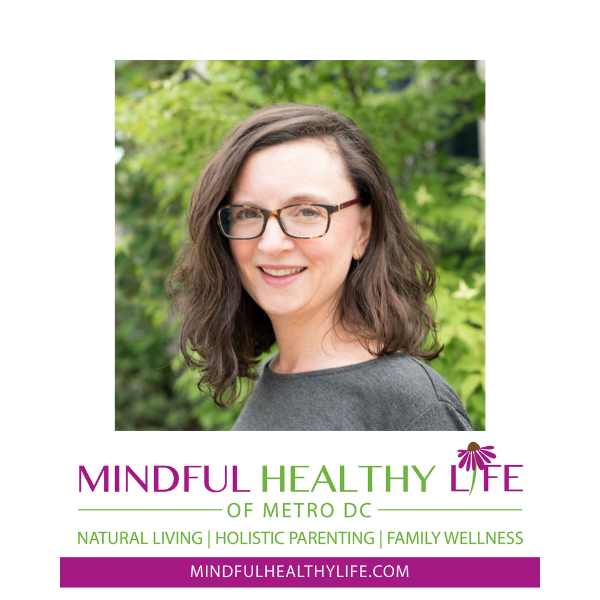Every parent has tough days. As a family therapist and parenting coach – and a parent myself! – I’ve found that cultivating a mindfulness practice based on three simple approaches can make a huge difference in the happiness of our home.
It would be a lie if I told you that my home life always runs smoothly. We still have rough patches, and now that my daughter is 13, toddler tantrums have turned into teen attitude! But mindfulness is a strategy that consistently works to help us get through the tough moments. If all parents integrated these three steps into their life, I am convinced that parents and children alike would be happier, healthier and more grounded. It’s surprisingly easy to create these habits and, in the midst of a difficult scene, it’s empowering to call on skills that really work.
If you are like me, you have a mix of good and bad moments every day. Whether your child is a toddler or a teen, your life may seem ruled by her behavior or mood. She may go from elated to meltdown, or angel to antagonist in a matter of minutes.
One of the biggest struggles I have as a parent is to not let myself get sucked into the drama of the moment. Like most parents, I have moments when I lose control and yell. Fortunately, since I discovered how to use my mindfulness practice, those difficult moments are few and far between.
Most of the time we are calm, understanding, and patient with our children. We enjoy them and understand that they are learning how to handle themselves in this complicated world. But what happens in those moments when we are hijacked by our own emotions and left wondering if we are fit to own a hamster, never mind raise a child? And more importantly, what can we do to minimize those occurrences? How do we avoid reacting with anger, yelling, threatening and punishing?
What I do, and what I teach other parents to do I call Mindful Parenting. It’s a practice I find not only helpful with children but also transformative for relationships. It can be used all the time, and for all relationships. I didn’t coin the term. See below for some of my favorite books that discuss it in more detail.

The way I practice and teach involves three steps.
Step 1: Cultivate a meditation practice.
I know, busy moms don’t have time for a meditation practice. I’m not talking about the weekend retreat in the woods or even the hour-long morning mediation, although those would be heavenly!
However, taking fifteen minutes, or even just five, to connect to your breath in the morning before getting out of bed, will change your day.
Just noticing your breath, and letting all other thoughts drift away and then setting your intention for the day can be simple, yet transformational. When we take a moment to quiet what the Buddhists call our “monkey mind,” we get a glimpse of calm, a glimpse of wonder.
As you practice for just five minutes, you may find yourself waking a bit earlier to practice more, or delaying your morning coffee for a few more moments while you breathe. Meditation literally changes your brain for the better. It lowers heart rate, blood pressure and can make you smarter!
At the end of your meditation, set your intention for the day. It may be simple, like “today I will be calm” or more grandiose, like “this day will be for the good of my entire family and all living creatures everywhere” or “today will be filled with laughter, joy and love.”
Always state your intention in the positive, what you want to happen rather than what you don’t want.

Step 2: Breathe.
Throughout the day when you feel stressed, take just one or two deep breaths. If you have meditated earlier, these breaths will bring you back to that state and will buy you time to act more thoughtfully instead of being reactive
Step 3: Reflect.
If you find yourself really wanting to react poorly to a situation, ask yourself, “why is this so upsetting to me?” Most often you will find that your reaction is not really about what is happening with your child (spouse, boss, mother- in-law) in the moment, but linked to a worry, such as “my child will never learn how to make friends, “what will the other mothers think?” or “I am a horrible parent!”
Something from the past might be triggering your anger. If you are feeling disrespected, ignored, or taken for granted, it is usually linked to a feeling of the same from your past. For me it’s being ignored. When my daughter ignores me – and what teenager doesn’t ignore her mother? – I am taken back to feelings of being ignored as a young child.
When I acknowledge my feelings, I have a greater ability to be present with my daughter deal with her appropriately. Take some time in the moment or later to revisit your underlying feelings. Journal about it if you can. As you start to notice and heal these feelings, you won’t react so strongly to your child when she pushes those buttons.
Being mindful of your relationship with your children is important because how we treat them will affect them for their entire lives. If we can be present and loving with them most of the time, our mistakes won’t be so destructive.
If we take the time to disentangle our old wounds from the triggers our children present to us, and we take responsibility for our actions and feelings, our relationships will improve and we will be on the road to raising children that will take responsibility for their own actions and feelings as well. And if we can model these mindful strategies, they will come easier to our children!
Namaste.
Recommended reading:

Francine Ronis, LPC, of Mindful Parenting is a child and family therapist and Parent Coach who specializes in helping families live more joyful lives by facilitating parenting classes, and meeting one on one with parents and families.


Great Advice! Thanks Francine for Sharing your tips